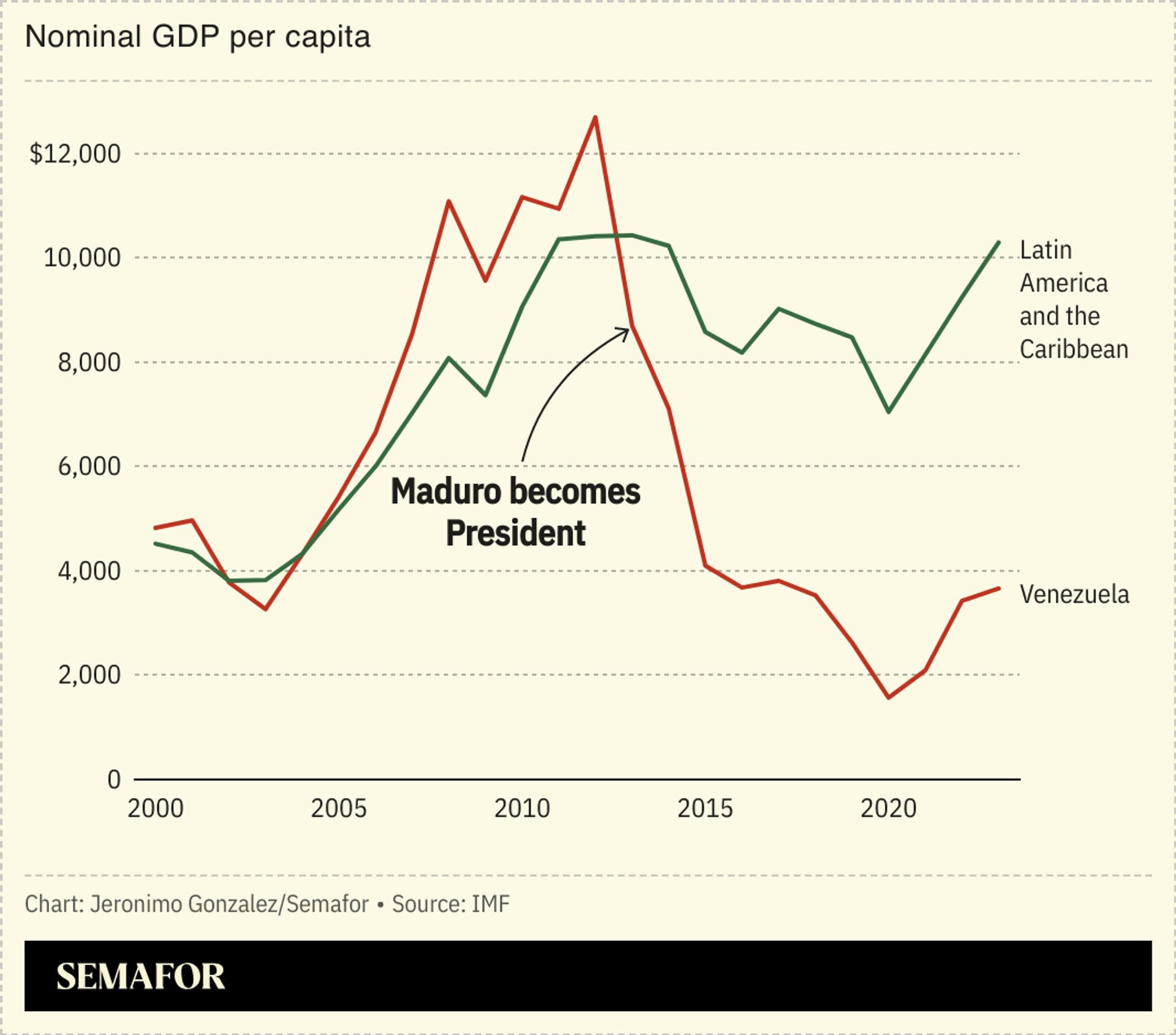The News
Officials in Venezuela arrested the head of security for the country’s top opposition leader just 10 days before presidential elections, due to take place on July 28.
Nicolás Maduro’s government has in recent weeks ramped up its crackdown on the opposition, whose candidate leads in independent opinion polls by almost two-to-one, resurfacing concerns about the possibility of a free and fair election in the country.
The government now has to grapple with a dilemma: It could allow for free elections at risk of losing them, or it could rig them, risking the reimposition of international sanctions and protests that could topple Maduro’s administration. “Dictatorships here are all the same,” an attendee at an opposition event told The Economist. “They seem so powerful. And then they are not.”

SIGNALS
Free and fair election would benefit US interests
The Biden administration “took a gamble” in Venezuela to promote democracy by lifting sanctions against oil companies in exchange for a promise of a fair election, The Washington Post reported, and it remains to be seen whether the gamble will pay off. The US hopes it’ll stop Venezuela from gravitating toward “strategic adversaries” like China and Russia and serving as an incubator for criminal organizations, and possibly help reduce the massive wave of emigration that has pushed over 7 million people to leave, Latin America experts told the Carnegie Endowment.
Maduro relies on red tape to make voting from abroad harder
Millions of people who fled the country — as many as 25% of registered Venezuelan voters now live abroad — won’t be able to vote because of bureaucratic red tape the Maduro government is relying on as a tactic that is “tantamount to sweeping electoral fraud,” The New York Times wrote. Many left the country because of its dire economic and political situation, and are unlikely to vote for Maduro. “Election fraud is not anymore just Election Day ballot stuffing,’’ an election expert told NYT. “It’s throughout the whole process.” Still, some of those who live abroad feel the wind of change blowing, Latin America-focused outlet Pirate Wire Services reported. One expat said this is the first time he’s seen staunchly pro-Chavismo groups changing their stance.
US relationship to Venezuela likely to change under Trump 2.0
If Trump wins reelection in November, the state of détente that the Biden administration has reached with Venezuela is likely to end. During his first presidency, Trump attempted to dislodge Maduro, and his justice department accused the Venezuelan president and other officials of criminal charges including narco-terrorism and drug trafficking. “Venezuela is one of those countries that is likely to be subject to change under a Trump administration,” an analyst told Reuters, including from a markets perspective. Venezuelan bonds “trading at deeply distressed prices” could be attractive to investors now, but that probably will change under Trump, who is likely to reimpose sanctions and will have to determine whether to approve a debt restructuring program for the country.

